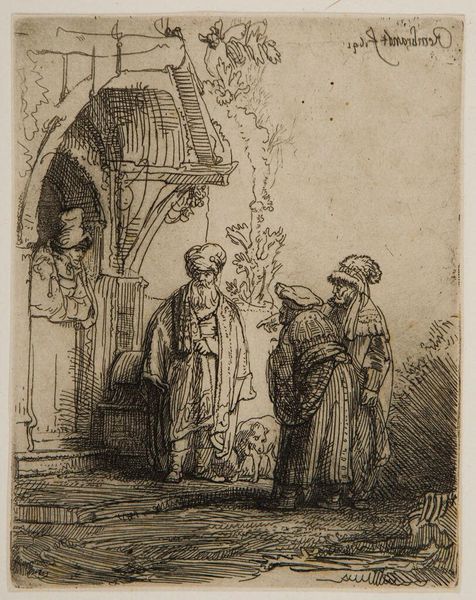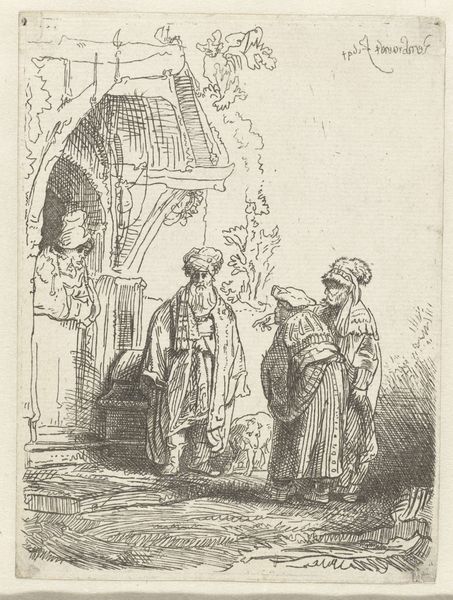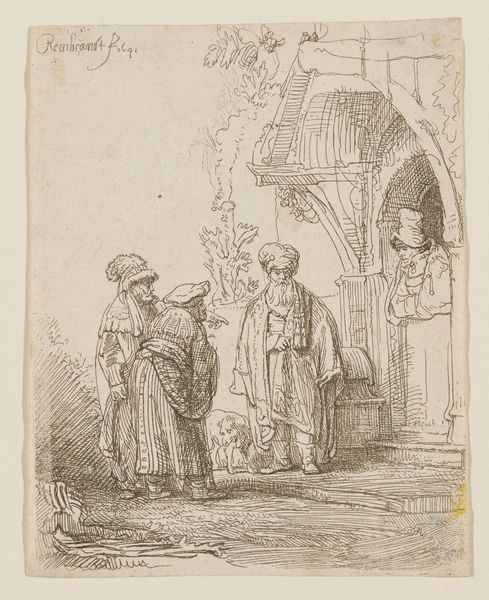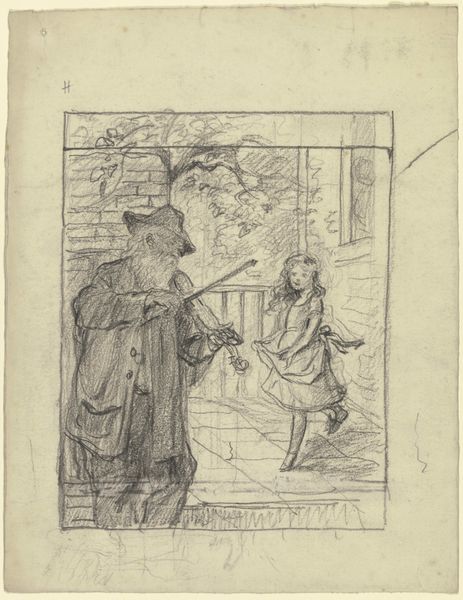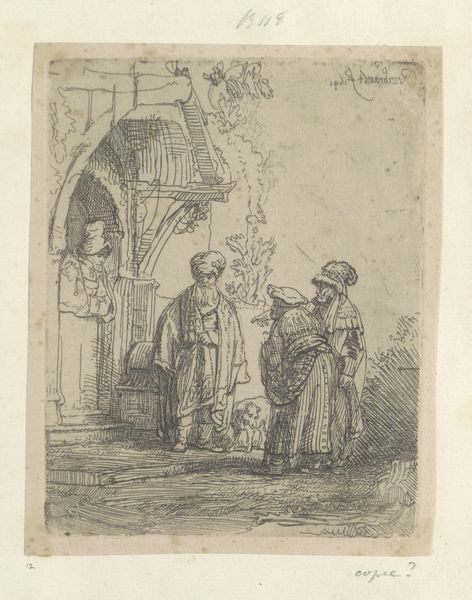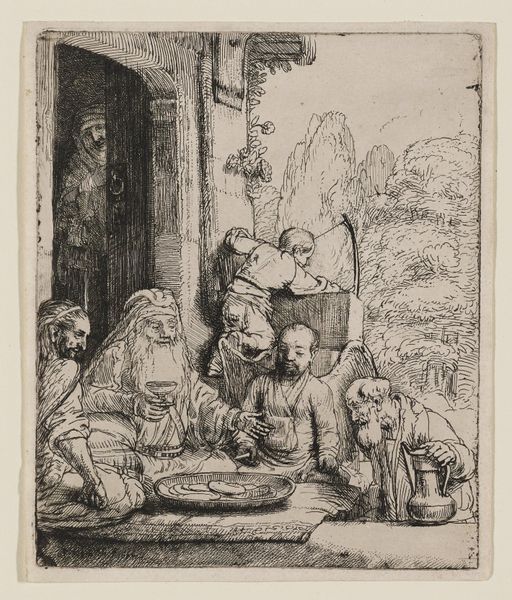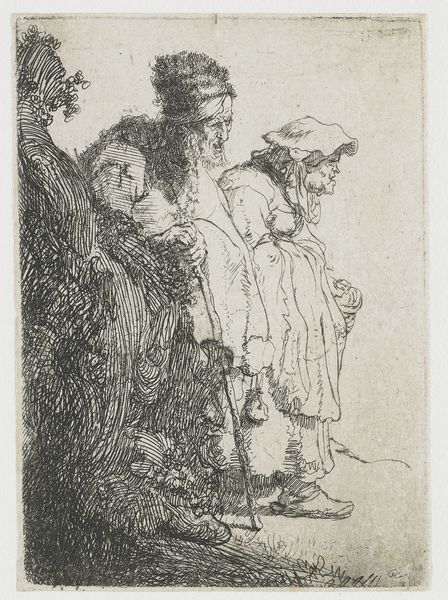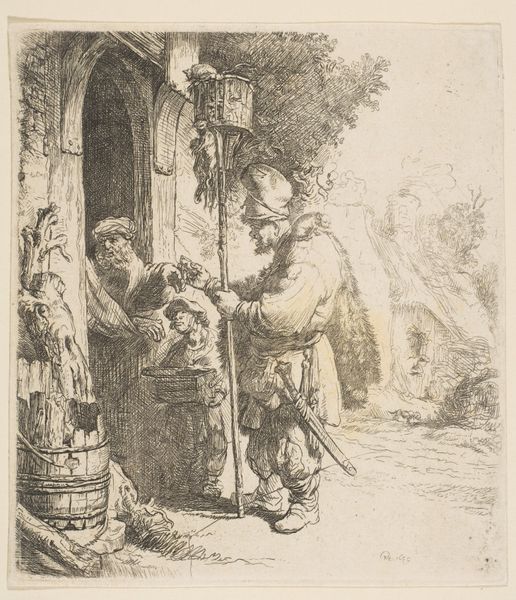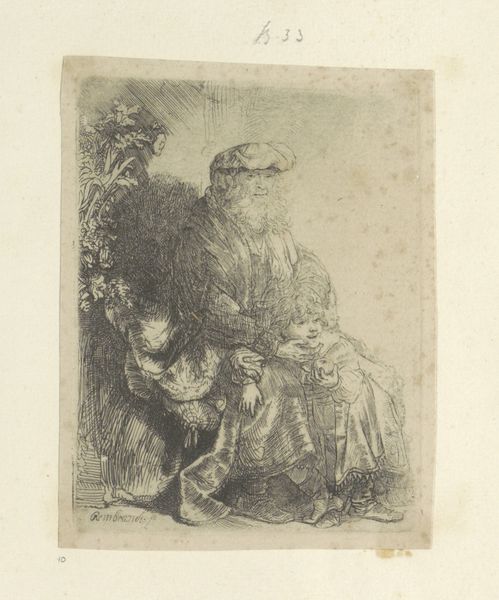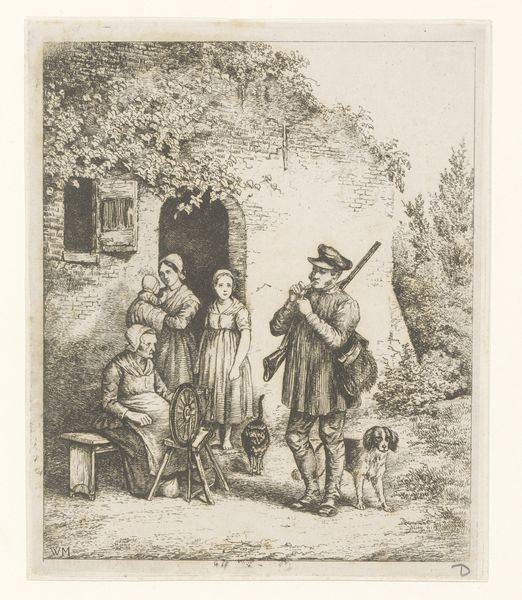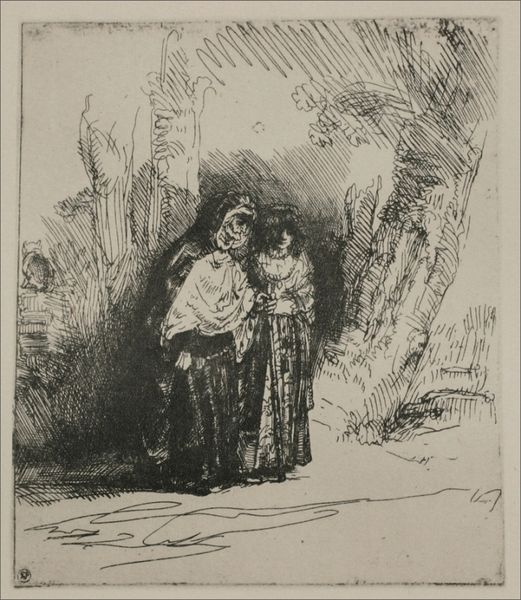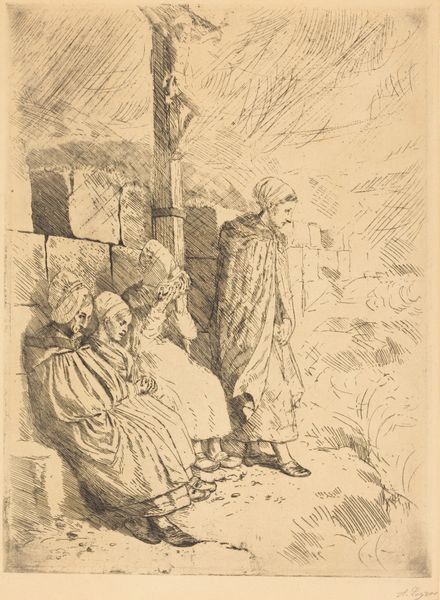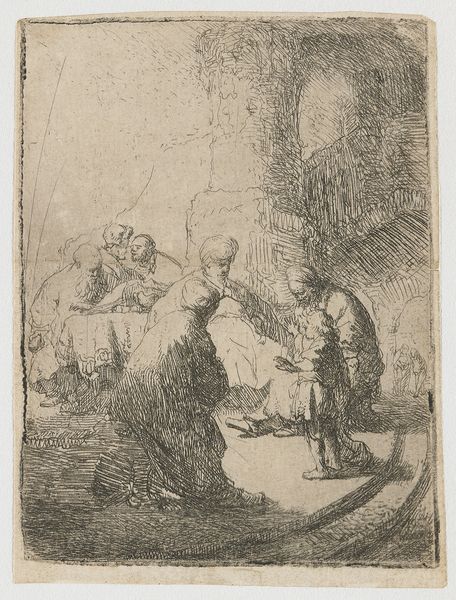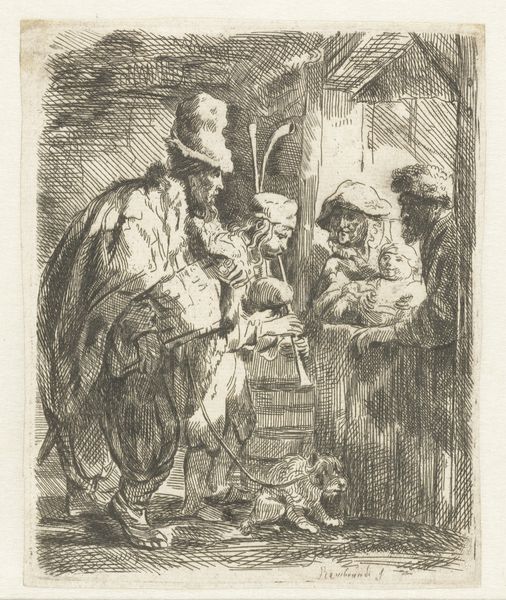
print, etching
#
narrative-art
#
baroque
#
dutch-golden-age
# print
#
etching
#
figuration
#
history-painting
Copyright: National Gallery of Art: CC0 1.0
Rembrandt van Rijn made this etching, Three Oriental Figures, in the Dutch Golden Age. The exoticism on display here reflects the Netherlands' extensive trade with the East. The clothing and turbans are how people in the Netherlands imagined the Middle East and countries further east. Note the dog, a common motif in Dutch art, especially as a symbol of loyalty. The figures stand in front of an elaborate doorway covered with vines. Rembrandt was very interested in how light could reflect off different textures, and this is visible in the detail of the doorway and the clothing. The image's title suggests these are figures from the Old Testament. This would have resonated with a Dutch audience familiar with the Bible. Rembrandt often drew on religious stories. But he placed them in contemporary settings, making them feel relevant to people's lives. By studying Dutch history, art and religious texts, we can better understand the social and cultural context of this print. Doing so gives us a window into how people in the Netherlands understood the wider world.
Comments
No comments
Be the first to comment and join the conversation on the ultimate creative platform.
